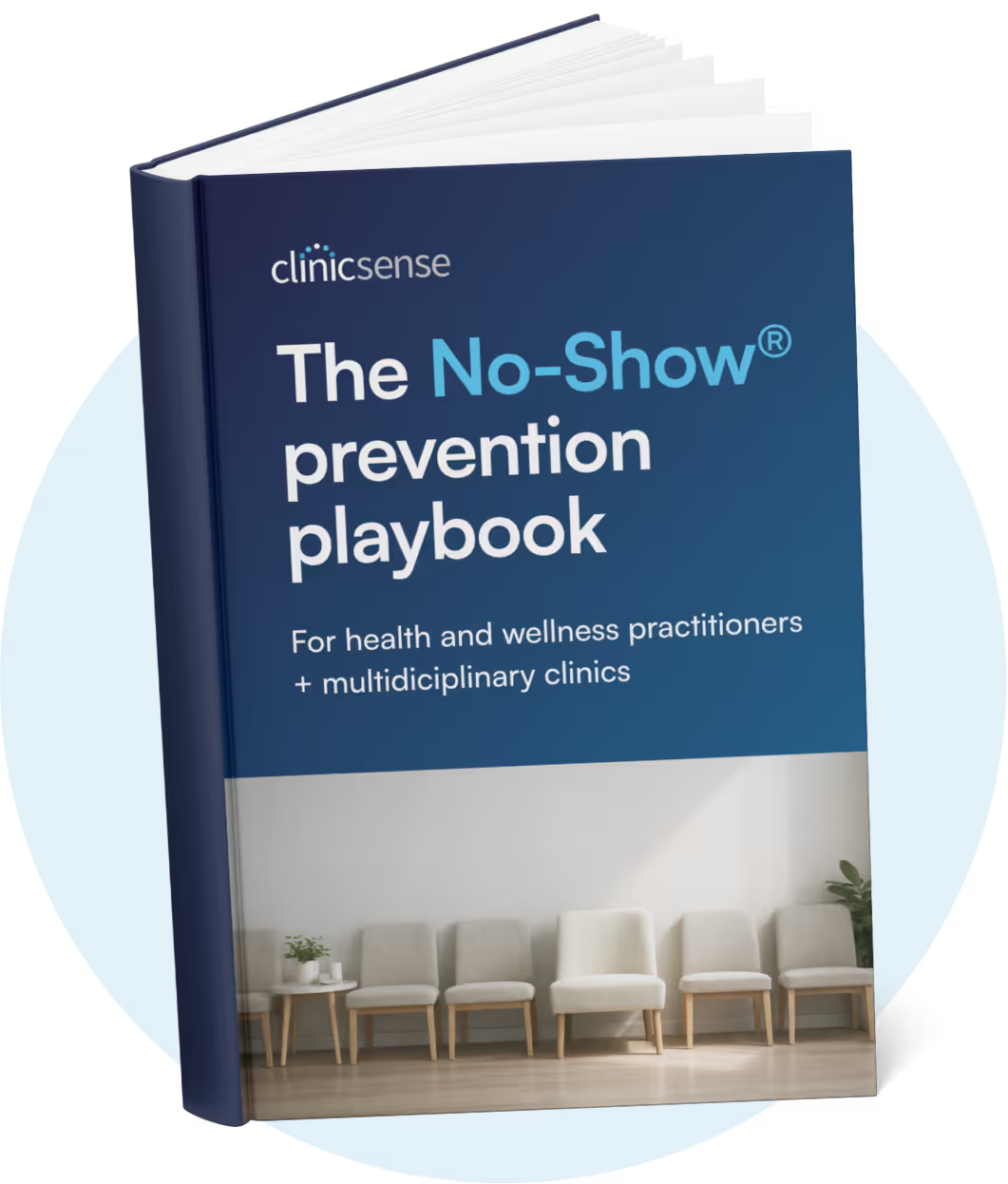How To Guides
October 1, 2025

As a massage therapist, effectively communicating the health benefits of massage therapy can significantly enhance client satisfaction and treatment outcomes. Many therapists struggle with translating technical knowledge into terms their clients understand, which can hinder client engagement and trust.
In this article, you’ll learn:
By the end, you'll feel equipped to confidently convey the transformative benefits of massage therapy and empower your clients to prioritize their well-being.
The best way to communicate the benefits of massage therapy to your clients is to relate it to their personal experience. Actively listen to the reason the client booked the appointment, and then explain how massage can have an impact onthat specific issue, in layman’s terms.
Use language they understand. Some clients are interested in muscle names and scientific explanations, but others justwant a general understanding of how this is going to help. Meet them on their level.
If you use massage SOAP notes software, you can quickly review notes from previous sessions and draw on your clients previous experiences too. Often clients forget the details of their last session, but when you take notes, you can connect the dots for them.
Next, we'll cover how to explain the health benefits of massage therapy in a way that your clients will understand - and in a way that empowers them to stick with their wellness plan.

Massage offers a lot more than relaxation. Massage therapy increases circulation, easing muscle and joint stiffness. It improves sleep quality, speeds up recovery after workouts, increases flexibility, reduces pain, and strengthens your immune system by enhancing your body's natural healing processes.
Here are 10 key physical benefits that you can gain from massage; we'll go into each in more depth: (there are many more!)
Massage therapy modalities like lymphatic massage have been gaining traction lately, and for good reason. This type of massage can help stimulate lymph flow, which supports your body’s natural immune function. The lymphatic system circulates lymph fluid through vessels alongside blood vessels, carrying immune cells that help defend against infection and removing excess fluid and waste products from tissues. While massage doesn’t “flush toxins” from the body, it may assist in promoting healthy lymph circulation, which is one part of how your immune system maintains balance.
Massage therapy increases local blood flow by encouraging blood vessel dilation, relaxing tight muscles, and stimulating tissue perfusion, often felt as warmth or slight redness in the area after treatment. The effect is usually short-term and specific to the area treated, but it can help in recovery, flexibility, and overall tissue health.
Muscles can get tight and stiff from everyday activities or stress. Massage helps by increasing circulation, which makes muscles more flexible and less tense. This not only feels good but also reduces the risk of injuries caused by tight muscles. You'll notice more comfort and easier movement after a massage.
Muscles surrounding your joints play a crucial role in their movement. When these muscles tighten, they can bring bones closer together, leading to friction and inflammation. Massage helps by relaxing these muscles, which reduces friction and eases joint inflammation. Improved circulation also disperses inflammatory cells, providing relief from joint pain.
Massage therapy triggers your parasympathetic nervous system, which promotes relaxation and digestion. During a massage, your body releases a cascade of restorative hormones that help repair tissues and soothe your mind. This hormonal balance not only aids in physical recovery but also encourages a deeper and more rejuvenating sleep, leaving you feeling refreshed and energized."
After a tough workout, your muscles can feel stiff and sore from tiny tears that are essential for stimulating muscle growth. Massage increases circulation, delivering vital nutrients to these muscles for faster healing and muscle growth. It also reduces stiffness, aiding in quicker recovery so you can get back to training feeling stronger.
Massage therapy promotes healthier, more flexible muscles that stretch easily and enhance your range of motion. If you experience discomfort when moving in specific ways, it may indicate a muscle that isn't stretching properly. A skilled massage therapist can identify and release these muscles, improving your ability to move comfortably and freely.
Massage therapy reduces pain in various ways. First, relieves muscle tension which is often the cause of everyday aches and pains. If your discomfort is muscular, a therapist can address the underlying issues, such as trigger points that create specific pain patterns. Massage also lowers stress levels, which can intensify pain. Plus, it triggers the release of endorphins—natural painkillers—making you feel better overall.
Lower stress levels and improved circulation both play important roles in supporting immune health. Massage therapy can help with both by promoting relaxation and encouraging healthy blood and lymph flow. The lymphatic system helps move immune cells throughout the body and clear out cellular waste - though it’s important to note that your liver and kidneys are responsible for filtering and removing actual toxins. In this way, massage supports your body’s natural systems that keep you healthy.
Craniosacral therapy gently works with the bones of the skull, spine, and sacrum to release restrictions in the central nervous system. This can ease tension headaches, improve spinal alignment, and promote whole-body balance.

Here are 10 mental benefits that you can gain from massage; we'll go into each in more depth:
Massage therapy decreases the production of cortisol, aka the stress hormone. Getting a massage turns off the fight orflight state we all live in by activating the parasympathetic nervous system which calms your whole system down. When the parasympathetic nervous system is on, calming and restorative hormones are released at levels you usually only get when you’re asleep. That’s you feel a little out of it (in a good way) when you get off the table.
Massage therapy lowers cortisol, the stress hormone, effectively switching off the body's fight or flight response. By activating the parasympathetic nervous system, it induces a state of calm and releases restorative hormones typically associated with deep sleep. After a session, you'll often feel pleasantly relaxed, benefitting from a profound sense of tranquility.
Massage therapy not only reduces stress but also enhances your mood. By promoting relaxation and reducing tension, massages stimulate the release of serotonin and dopamine—hormones known for boosting feelings of happiness and joy. It's a natural mood enhancer that leaves you feeling uplifted and positive.
Massage therapy has a calming effect on your nervous system, easing anxiety by quieting the mind and reducing the fight or flight response. It switches on the rest and digest state, promoting relaxation. Enhanced by feel-good hormones like serotonin and dopamine, along with the bonding hormone oxytocin, massage leaves you feeling grounded and cared for.
Massage therapy can provide an energy boost, especially if you lead a sedentary lifestyle. Improved circulation and the release of feel-good hormones can invigorate you. Techniques like sports massage are tailored to keep you alert and ready, unlike more relaxing methods such as Swedish massage or deep tissue.
Massage therapy offers significant benefits for managing depression, often linked to chemical imbalances. By enhancing the release of mood-boosting chemicals, massages can alleviate feelings of melancholy, whether temporary or persistent. The therapeutic effect of physical touch also contributes positively to emotional well-being, making massage particularly valuable for individuals lacking social interaction.
Fatigue often stems from stress, anxiety, depression, and/or muscle tension, which can deplete your energy reserves. Massage therapy addresses these issues effectively, providing relief and promoting relaxation. Additionally, it boosts the release of restorative hormones usually associated with deep sleep, helping to replenish your energy levels.
Massage therapy effectively addresses various types of headaches. It alleviates tension headaches by releasing tight muscles in the neck and shoulders, reducing their triggering effects on pain. For migraines linked to muscle tension, massage can diminish both intensity and frequency. Additionally, it targets jaw muscles to alleviate TMJ-related headaches, and trigger point therapy is especially effective for treating headaches caused by referred pain.
Massage therapy is both a treatment and preventive measure for repetitive stress injuries (RSIs). Whether from work tasks, hobbies, or occasional projects, repetitive movements can strain muscles and lead to conditions like tendonitis. Massage effectively releases muscle restrictions and alleviates pain associated with RSIs. Establishing a regular massage regimen, along with stretching, taking breaks, and varying activities, is key to preventing these injuries.
Massage therapy effectively supports sleep disorders by reducing cortisol levels, which can keep the mind alert when trying to sleep. By calming the nervous system, massage promotes relaxation and creates a conducive environment for restful sleep. Regular massage sessions can improve overall sleep quality and help establish healthy sleep patterns
In short,
Massage therapy offers effective relief for anxiety and depression by calming the nervous system, enhancing mood, and balancing energy levels. It also alleviates fatigue, addresses headaches—including tension headaches and migraines—and treats repetitive stress injuries. It also supports better sleep by reducing cortisol and promoting relaxation.
Let’s take a close look at how massage helps you feel better.
Massage therapy software enhances patient care by organizing client records, treatment plans, and SOAP notes. It streamlines scheduling, supports effective client communication, and facilitates personalized treatment packages. These tools optimize customer service, ensuring efficient scheduling and maintaining detailed records for improved treatment outcomes.
When you use massage therapy software, it’s easy to communicate the health benefits of massage therapy to your clients with email newsletters and wellness check-ins, as well as collect feedback about your clients’ experience.
Every client is unique, and keeping detailed SOAP notes helps you cure their ailments and provide consistently good care. If you’re using a free SOAP note template, consider trying a SOAP notes free trial to discover how massage therapy software can improve your effectiveness as a massage therapist.


.avif)











For 14 days